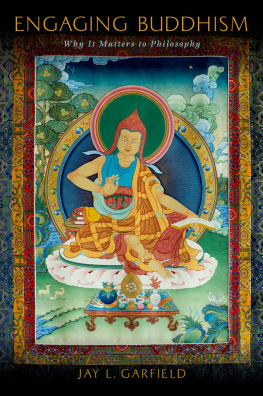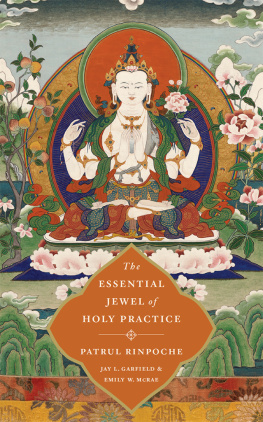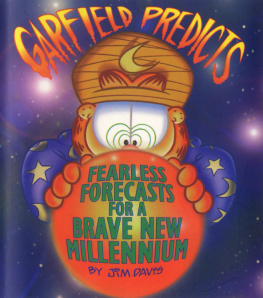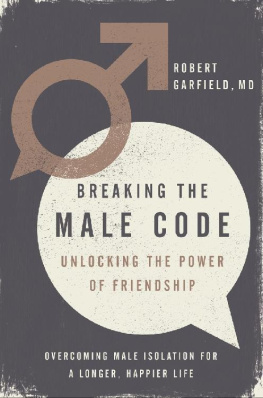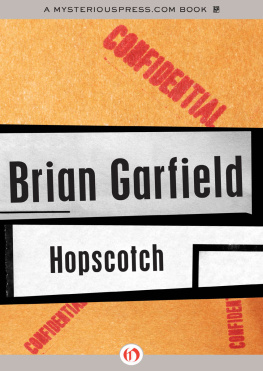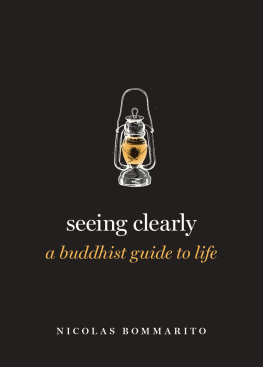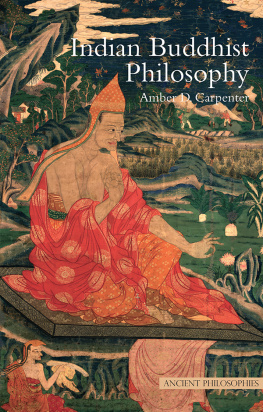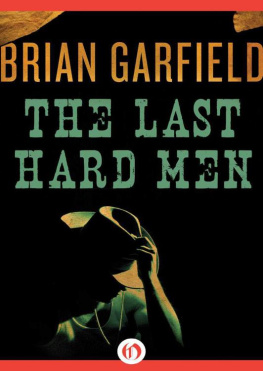LOSING OURSELVES
Losing Ourselves
LEARNING TO LIVE WITHOUT A SELF
JAY L. GARFIELD
PRINCETON UNIVERSITY PRESS
PRINCETON & OXFORD
Copyright 2022 by Princeton University Press
Princeton University Press is committed to the protection of copyright and the intellectual property our authors entrust to us. Copyright promotes the progress and integrity of knowledge. Thank you for supporting free speech and the global exchange of ideas by purchasing an authorized edition of this book. If you wish to reproduce or distribute any part of it in any form, please obtain permission.
Requests for permission to reproduce material from this work should be sent to permissions@press.princeton.edu
Published by Princeton University Press
41 William Street, Princeton, New Jersey 08540
99 Banbury Road, Oxford OX2 6JX
press.princeton.edu
All Rights Reserved
Library of Congress Cataloging-in-Publication Data
Names: Garfield, Jay L., 1955 author.
Title: Losing ourselves : learning to live without a self / Jay L. Garfield.
Description: Princeton : Princeton University Press, [2022] | Includes bibliographical references and index.
Identifiers: LCCN 2021053549 (print) | LCCN 2021053550 (ebook) | ISBN 9780691220284 (hardback : acid-free paper) | ISBN 9780691220291 (ebook)
Subjects: LCSH: Self (Philosophy) | BuddhismDoctrines. | BISAC: PHILOSOPHY / Buddhist | SELF-HELP / Personal Growth / General
Classification: LCC BD438.5 .G385 2022 (print) | LCC BD438.5 (ebook) | DDC 126dc23/eng/20211207
LC record available at https://lccn.loc.gov/2021053549
LC ebook record available at https://lccn.loc.gov/2021053550
Version 1.0
British Library Cataloging-in-Publication Data is available
Editorial: Rob Tempio & Matt Rohal
Production Editorial: Ali Parrington
Jacket Design: Chris Ferrante
Production: Erin Suydam
Publicity: Alyssa Sanford & Carmen Jimenez
Copyeditor: Jodi Beder
Jacket art: M.C. Escher, Rind 2021 The M.C. Escher Company, the Netherlands. All rights reserved. www.mcescher.com
In Memory of Sandy Huntington,
Friend, Colleague, and
Companion in Cross-Cultural Philosophy
CONTENTS
- ix
- xv
- 67
PREFACE
THIS BOOK is a reflection on selflessness, that is, on what it is to be a person, but not to be a self. My initial focus will be metaphysical: an exploration of what kinds of things we are, and of what kinds of things we are not. But the real point of this exploration will emerge towards the end of the book, when we turn to the ethical import of the nonexistence of the self, and what it means for our understanding of our place in the world. I will be arguing explicitly for a position that many may think flies in the face of common sense, viz., that we are not selves, nor do we have selves. I will not argue that we do not exist. That would be madness. But I will argue that we exist not as selves, but as persons. I hope that my argument, to the extent that it is convincing, also persuades you that too often what masquerades as common sense is in fact nonsense. It follows from this that any philosophical program that takes our commonsense intuitions for granted, and then takes as its task to defend them by elucidating them, or by making them more precise, may simply ramify confusion instead of generating clarity.
Some may react to this discussion by thinking that I am drawing a purely verbal distinction that reflects no real philosophical difference, and so think that I am devoting too much ink to making a trivial lexical point; that I am merely arguing for the substitution of one of a pair of synonyms for the other. Others might think that in arguing against the view that we are, or have, selves, I am arguing against a straw man, a position that nobody in fact believes. I hope to convince you that neither is the case, that these terms have very different meanings, that many peoplewhether professional philosophers or nottake themselves to be selves and not persons in the relevant sense, and that they are wrong to do so. That is, the distinction to which I will draw your attention is a real one, and the position against which I am arguing is no straw man.
The ideas that I will develop are inspired by my long engagement with two philosophers, one Indian and one Scottish: Candrakrti (c. 600650 CE) and David Hume (17111776 CE). Candrakrti was a Buddhist scholar and a partisan of the Middle Way School of Mahyna Buddhist philosophy. He was distinctive in his defense both of the robust reality of the world we inhabit, and of the view that despiteor more accurately, because ofthe fact that that it is real, our own existence and that of the objects and institutions that surround us is merely conventional, dependent upon the way we think, and the way we talk. He argued that although we might take ourselves to be selves that exist independent of and prior to these conventions, this is an illusion; instead, he argued, these practices constitute us as persons. All of this might sound a bit incoherent and even mystical, but as we continue our investigation, its plausibilityand, I hope, its correctnesswill emerge.
Just over 1,000 years after Candrakrtis death, David Hume, in Scotland, defended strikingly similar views. He, like Candrakrti, argued that we must take the reality of the world around us for granted; he also argued that we are systematically confused if we take our own existence, and that of the world around us, to be prior to and independent of our conventionsour ways of acting, talking, and thinking. Hume also argued that although we have a persistent illusion of being seslves, we are instead constituted as persons in the context of our interactions with one another and of the practices that enable those interactions. Although many have thought of Humes position as interesting only as a straw man to attack, I again hope that as we proceed, its plausibility and indeed its correctness will emerge.
The fact that although Candrakrti was a Buddhist monk and Hume was a persistent critic of religion in a Christian country, they developed strikingly similar accounts of personhood as well as strikingly philosophy; it is merely the exploration of an idea in conversation with a wide a range of partners. I will therefore not spend much time doing textual work, except where necessary to make that conversation clear. I do hope, though, that this discussion demonstrates in part the value of entering into conversation with multiple traditions when we ask philosophical questions.
I take the topic of I believe that the illusion that we are selves undermines ethical cultivation and moral vision, and that coming to understand ourselves as persons facilitates a more salutary, mature moral engagement with those around us. For this reason alone, it is important to shed the illusion of the self and to come to terms with our identities as persons.
My goal in this short book is to defend what I take to be a correct position, or at least an interesting one. I cannot provide a complete survey of the issues relevant to this question, let alone definitive solutions to any philosophical questions. In particular, there are fascinating and important questions about how to extend these ideas in order to understand the role of such phenomena as race, gender, and sexuality in the construction of our identities; these will have to be addressed on another occasion. Nor will I venture a careful history of thought about the self and the person, either in Asian or in Western traditions. Others have done that well. There is a vast literature to explore if one is interested in the self and in our identity. I will nod towards some of that literature in the course of this discussion, but I will try to keep the account as uncluttered as possible, so as to make this an easy read. Professional philosophers know where to find more. I include references that will guide those not already immersed in this literature to some of the most important work of my interlocutors. And I hope that this short book stimulates some of my readers to go deeper into this question in conversation with the textsboth classical and contemporaryto which I refer.
Next page

